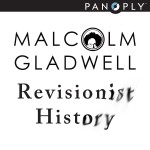Articles I Saved
Intertwingled Book Excerpt
Benchley’s Law – there are two kinds of people in the world, those who believe there are two kinds of people in the world, and those who don’t – points us in the right direction. To collaborate, we must admit ambiguity and complexity, and avoid premature classification.
 Intertwingled is in my top 10 non-fiction books. I enjoyed it enough to have read it twice within 12 months.
Intertwingled is in my top 10 non-fiction books. I enjoyed it enough to have read it twice within 12 months.
This article is one of a series of excerpt that Peter Morville, the author, has been writing from his books.
This article covers one of the core messages in the book, classification.
I am intrigued by the idea of how we classify things. It influences our conversation and the way we see the world. Many of the difficult topics are in some sense bounded by their classification; race, religion, equality, feminism etc. are all forms of grouping. We like to believe that there are clear boundaries, but the truth is never that binary. Things are never that clear.
The real world is grey. Everything is grey. We think it’s not. That is just an illusion.
It all depends on where you start from. If you can change the way a person classifies what they see, you change how they see, and therefore how they think about it.
I work with ambiguity all day. As a business analyst you have to be comfortable with ambiguity and complexity, because that is where the truth is.
Hillary: Why The Clinton America Sees Isn’t The Clinton Colleagues Know
From classification to politics, and the American presidential election race. If the first article was about classification, this one is about listening.
As I began to press the people I talked to about why they brought up Clinton’s listening skills, a torrent of complaints about other politicians emerged. “The reason so many people comment on this is most of us have experienced working with people who are awful listeners,” says Sara Rosenbaum, who worked with Clinton on the 1994 health reform bill and is now at George Washington University. “Because they don’t listen, they can’t ask good questions. They can’t absorb the information you’ve given them.
* Emphasis is mine.
The author, Ezra Klein, is exploring why people who have worked with Hillary Clinton have a different view to that portrayed from the campaign trail. The two images stand in stark contrast.
He tracks it down to her ability to listen. To really listen to people, build relationships, and change her mind. Exactly the skills you want from your politicians.
Yet that is not what we base our votes on. We based our votes on how well the person communicates in speeches, and comes across in interviews and TV debates.
This is flawed.
This is not a defense or promotion of her, but rather an observation of how politics has evolved.
Are we deciding who should govern us based on the most relevant attributes?
How technology disrupted the truth
The impact on journalism of the crisis in the business model is that, in chasing down cheap clicks at the expense of accuracy and veracity, news organisations undermine the very reason they exist: to find things out and tell readers the truth – to report, report, report.
Many newsrooms are in danger of losing what matters most about journalism: the valuable, civic, pounding-the-streets, sifting-the-database, asking-challenging-questions hard graft of uncovering things that someone doesn’t want you to know. Serious, public-interest journalism is demanding, and there is more of a need for it than ever. It helps keep the powerful honest; it helps people make sense of the world and their place in it. Facts and reliable information are essential for the functioning of democracy – and the digital era has made that even more obvious.
* Emphasis is mine.
Another good long read article discussing the challenges facing journalism.
We should all be worried about what is happening and who is looking out for the truth.
Leverage Points: Places to Intervene in a System
Folks who do systems analysis have a great belief in “leverage points.” These are places within a complex system (a corporation, an economy, a living body, a city, an ecosystem) where a small shift in one thing can produce big changes in everything.
This idea is not unique to systems analysis — it’s embedded in legend. The silver bullet, the trimtab, the miracle cure, the secret passage, the magic password, the single hero who turns the tide of history. The nearly effortless way to cut through or leap over huge obstacles. We not only want to believe that there are leverage points, we want to know where they are and how to get our hands on them. Leverage points are points of power.
* Emphasis is mine.
Too many great articles this week. This is an oldie and a goodie. I come back to this one over an over again. I can’t recommend it enough.
The article explores leverage points. Places where a relative smaller effort produces a larger result. She has many great examples.
My favourite are the last two. Your own mindset affects everything you see. But above that is the ability to recognise that you can change your mindset, or change the paradigm you are operating under.
6 books recommended by Richard Thaler, a founding father of behavioral economics
I am a sucker for book lists. As I have read a couple of these already and rate them, I’ll be adding the others to my reading list.
Podcasts I Heard
Revisionist History Episode 4 – CARLOS DOESN’T REMEMBER
Carlos is a brilliant student from South Los Angeles. He attends an exclusive private school on a academic scholarship. He is the kind of person the American meritocracy is supposed to reward. But in the hidden details of his life lies a cautionary tale about how hard it is to rise from the bottom to the top—and why the American school system, despite its best efforts, continues to leave an extraordinary amount of talent on the table.
What Stuck
It is easy to say that merit is enough. If you are in a privilege position this idea comforts you, because it is true in your own position. At least more true.
But it is not true for everyone in society.
So depending on what you think should happen, and what you believe is the greater good, the story you tell yourself might be flawed.
I find this intriguing as it challenges me personally. It challenges me to think about the systemic problems in society and elsewhere that I don’t experience, or may only experience in some instances. They are real to other people, people different from me. If I cannot have empathy for their position, then I don’t have the right to comment.
Startup (Season 3, Episode 10): 2680 Madison Road
Something is amiss at 2680 Madison Road. In the thriving Cincinnati neighborhood of Hyde Park, the property is sandwiched between several decades-old Cincinnati staples, and a stone’s throw away from an upscale shopping center. The space is huge, the parking is ample. And yet, the building has been abandoned for five years. Seven different businesses have cycled through the address over the last thirty years. It seems that every business that inhabits its four walls is destined to fail.
Alex Blumberg sends StartUp Senior Producer Kaitlin Roberts to his hometown to investigate this peculiar property. With microphone in hand, she books a ticket to Cin City.
What Stuck
I liked this because I have asked the same question myself. I was hoping it would get into some kind of contextual or environmental discussion. It didn’t.
But it did explore the many lives of that building.
It shows that we just don’t know what really happened and why. We don’t know what those businesses were going through. In the same way we don’t know what struggles other people have going on in their lives.
We shouldn’t judge.
Invisibilia: The New Norm
Social norms determine much of your behavior – how you dress, talk, eat and even what you feel. Alix Spiegel and new co-host Hanna Rosin examine two experiments that attempt to shift these norms.
What Stuck
How have I not listened to this podcast more! This is right up my street.
The bulk of this episode explores a change in approach to deep-sea oil drilling in the Gulf of Mexico. It is super interesting to anyone interested in learning and learning organisations.
Here are a quote from the transcript, this is at about the 34 minute mark.
ROSIN: This is Harvard Business School professor Robin Ely. After Ursa was up and running, Robin and a fellow academic from Stanford named Debra Meyerson heard about Rick’s experiment and decided to study it, see if it was going to work. They spent months documenting the rig’s culture, watching the men talk, be vulnerable and open with each other.
And what Robin saw was that when the men became more open with each other, it wasn’t just feelings that were being passed back and forth, but information, technical information that helps a platform run smoothly and safely. This was the kind of change that explains the 84 percent decline in accidents.
We can be our own worst enemies. Our ego does get in the way, see here and here.
Freakonomics: The Longest Shot
Social norms determine much of your behavior – how you dress, talk, eat and even what you feel. Alix Spiegel and new co-host Hanna Rosin examine two experiments that attempt to shift these norms.
What Stuck
Football (soccer) fun. Exploring Leicester City’s premiership win this season.
Book am I reading (Non-Fiction)
People Skills by Robert Bolton.

If I was looking for a theme this week it must be about systems and system thinking.
I am seeing causal loop diagrams everywhere. There is one in the quote below.
This quote comes from a section on assertiveness. As defined by the author assertiveness is looking after your own space and needs. It is not dominating the other person. It is not being mean or anything extreme, that is aggression.
For example, at a family conference everyone agreed to put their dishes and silverware into the dishwasher so the mother would spend less time in the kitchen at night. When anyone forgot his plate, mother took care of them. Within a month, mother was regularly cleaning the table for everyone. Though the mother was not even aware of it, she was systematically training her family to ignore their agreements.
The Systems Thinking Playbook: Exercises To Stretch And Build Learning And Systems Thinking Capabilities

More systems thinking, maybe that is why I am seeing it everywhere today.
I am looking for exercises for the BA meetup mentioned earlier.
Have a great week.
Heath



